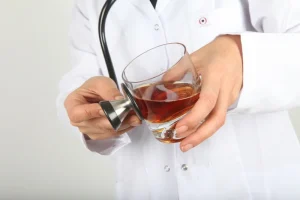Alcohol Detox Shakes & Tremors: How to Stop Them The Recovery Village Columbus Drug and Alcohol Rehab
Posted by
–

Doctors often prescribe medications like Primidone (Mysoline) and Propranolol (Inderal) to help alleviate these uncomfortable symptoms. Additionally, benzodiazepines like Diazepam or Lorazepam can be used to control anxiety, agitation, and other withdrawal symptoms under medical supervision. Your nervous system and brain are significantly impacted by alcohol abuse, and long-term addiction can lead to alcohol-related brain damage. Severe alcohol withdrawal, known as withdrawal syndrome or alcohol withdrawal syndrome, is a potentially life-threatening condition that should be treated under the care of medical professionals. The term “alcohol shakes” paints a vivid picture of what many how to stop alcohol shakes people undergo during alcohol withdrawal. Imagine your hands or, in severe cases, your whole body trembling uncontrollably.
Alcohol Withdrawal Syndrome and Detox Shakes
Individual therapies are common in addiction recovery, so you should have an opportunity to seek the root cause of your addiction. Substance use disorders can manifest as a way to cope with https://ecosoberhouse.com/ the stresses and trauma of life. Alcoholics Anonymous is a widespread organization dedicated to promoting the 12-Step Program and educating people on methods to rid themselves of addiction.
Causes Of Alcohol Tremors

Typically, these tremors begin within 5 to 12 hours after the last drink and may gradually increase in intensity. There are no medications specifically designed to treat alcohol shakes, however, medications can be used to treat the symptoms. Some medications that can be used to treat alcohol shakes include anti-anxiety medications, anti-seizure medications, and muscle relaxants. It is important to consult with a doctor before taking any medications for alcohol shakes. It is also important to avoid further alcohol consumption until the shakes have subsided.
Walk-In Rehab Options for Alcohol Addiction in Georgia

We invite you to contact us today to learn how we can help as you embark on your recovery journey. Alcohol can inhibit the process of GABA receptors and decrease the production of glutamate. Glutamate is a neurotransmitter that also plays a role in memory recall and processing. Once the body becomes dependent on alcohol, it may be difficult to quit. Physical dependence on a substance poses many obstacles but that does not mean there isn’t hope for recovery. At The Recovery Village Kansas City in Missouri, we understand the difficulties you face in confronting addiction and are here to support you every step of the way.
- Consuming a large quantity of alcohol causes inflammation of the nervous system.
- Hangovers or withdrawal are a shock to the system, especially for people who have been drinking for a long time.
- Alcoholics Anonymous has branched out into other fields in the realm of addiction recovery.
- It’s been a couple of hours since your last drink, and you notice your hands shaking ever so slightly.
- With early intervention and the right support, there’s hope to manage and overcome these tremors.
Be sure to line up a friend or family member to stay with you through the process. Usually, by the third day you won’t really need them there except to check in on you. If you’re embarking on this life-changing journey, you need only to go into it prepared. You’ll also want to eliminate foods and beverages that make you feel jittery. Caffeine can make you feel shaky even if your body isn’t reacting to a lack of alcohol.
- The second moderate withdrawal stage occurs between 12 and 48 hours following the last drink.
- While this won’t stop the tremors completely, it can help to ease the symptoms.
- The employee comes to work, sits at their desk, and can’t put the coffee up to their lips without it feeling like an earthquake rattles beneath them.
Benzodiazepines for Alcohol Shakes & Withdrawal
Acute alcohol withdrawal and excessive alcohol consumption are the two potential causes of tremors. For more severe cases, inpatient residential treatment programs may be necessary. Inpatient rehab provides comprehensive care that includes the expertise of alcohol rehab medical professionals and addiction specialists. Medication can play a crucial role in managing alcohol withdrawal symptoms, especially if you experience severe shaking or tremors.
How Long Do Tremors Last?

Your blood pressure levels, body temperature, heart rate, and blood tests will also be carefully monitored. You will be given fluids by an IV and may be sedated with medication to ease the withdrawal symptoms. The Recovery Village Indianapolis offers comprehensive addiction treatment for drug and alcohol addictions and co-occurring mental health conditions. Even after the acute phase of alcohol withdrawal has passed and recovery has begun, some individuals may continue to experience residual shakes and tremors.
Identify the Warning Signs
The FHE Health team is committed to providing accurate information that adheres to the highest standards of writing. This is part of our ongoing commitment to ensure FHE Health is trusted as a leader in mental health and addiction care. Many people experience shakes and tremors when they’re hungover, but they’re unlikely to be the same from one person to the next. We at The Recovery Village Indianapolis Drug and Alcohol Rehab are here for you. Contact us today for guidance and support in your unique journey towards sobriety and wellness. Remember, reaching out for help is a sign of strength and the first step towards reclaiming control over your life.
- Our PHP offers structured, intensive treatment during the day while allowing you to return home in the evenings.
- These tremors and other withdrawal symptoms typically begin within a few hours after the last drink and are caused by an imbalance in the central nervous system.
- Our supportive housing offers a safe space where you can focus on healing while building independence.
- Simple exercises, especially those that focus on fine motor skills and coordination like yoga or tai chi, can help in strengthening muscles and improving control over tremors.
- Over time, the brain and the central nervous system become accustomed to this “lower standard” of operating.
- Alcohol has a dehydrating effect on our body, and this dehydration can worsen withdrawal symptoms like tremors.
If the alcohol shakes persist for months after abstinence, the addiction specialists will typically recommend that the patient see a neurologist. An MRI can identify shrinkage in the cerebellum, which is a sign that it has been damaged from alcohol. This can also be caused by nutritional deficiencies, which can be rectified by supplementing thiamine. While there is more that goes into aftercare, these two facets of it allow the client to fully mitigate their alcohol shakes.
Alcohol shakes can also be caused by long-term alcohol abuse, which can result in damage to the brain, nerves, and liver. Prolonged alcohol use can disrupt the communication between the brain, muscles, and nerves, leading to symptoms like hand tremors. Alcohol shakes, commonly seen in individuals experiencing alcohol withdrawal, manifest as involuntary trembling or quivering, particularly in the hands. These shakes are a significant symptom of withdrawal and often arise when someone with alcohol dependence abruptly stops or reduces their alcohol consumption. Dealing with alcohol shakes can be a challenging and uncomfortable experience, but there are practical strategies that can help manage and alleviate these symptoms. In this article, we will explore the causes of alcohol shakes and provide a comprehensive guide on how to cope with them effectively.
Leave a Reply